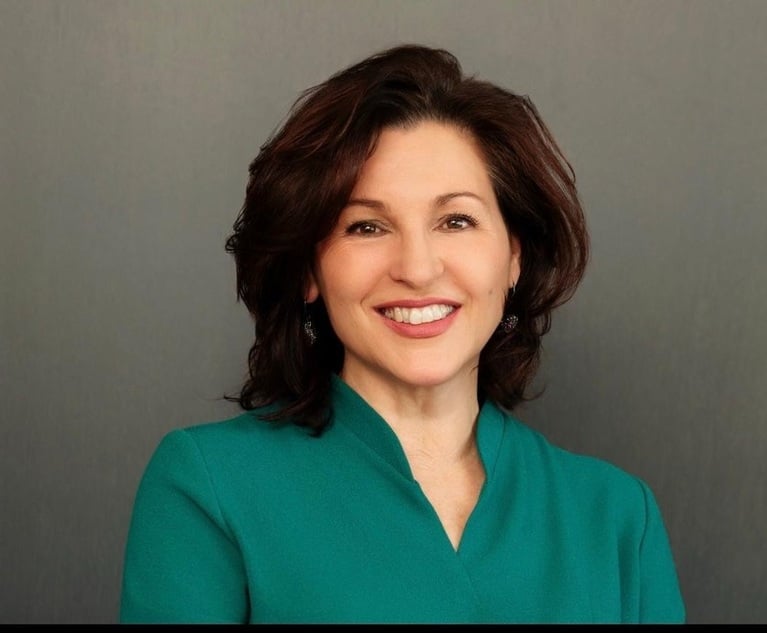Pinsents' Profits Drop For First Time Since 2011
The firm's LLP accounts reveal pay decreases for both the top-paid partner and the management team.
February 05, 2020 at 07:29 AM
2 minute read
Pinsent Masons' profits fell last year for the first time in nearly a decade, according to its latest set of LLP accounts.
The firm posted operating profits of £142.7 million in the last financial year, representing a drop of 1% compared to 2018—its first overall profit drop since 2011.
In addition, Pinsents' top-paid partner saw their pay packet fall by over 10% to £1.1 million, while the firm's management team received £6.3 million, down 3% on the previous year.
However, the firm posted a 6% rise in its overall turnover, increasing its top line from £450.1 million to £478.3 million.
In a statement to Legal Week, Pinsents managing partner John Cleland said: "Our FY18/19 accounts show a business with strong fundamentals and a long-term outlook. Our partners are committed to making the investments in our platform that will ensure we remain relevant to clients, and the communities in which we operate, now and in the future.
"FY18/19 was a year in which we continued our transition from an expertise-based law firm to a professional services business with law at its core, and invested in expanding our range of adjacent skillsets and offerings to deliver better solutions for and with our clients."
In July, the firm cited the need to ring-fence significant funds for further investment in areas including IT and cyber security as one of the core reasons for a decline in its profit per equity partner (PEP).
Back in March, the firm launched its flexible lawyering arm Vario in Hong Kong, taking on the former Axiom Asia head Kirsty Dougan.
It also became the latest firm to establish a project management division aimed at helping support delivery of matters on time and on budget in November.
At the tail-end of the last financial year, however, the firm witnessed a number of partner departures, including energy partner Chris McGarvey and employment partner Steven Cochrane to CMS; David McEwing to Addleshaw Goddard and Joel Kordan to Pennington Manches.
More recently, the firm delayed its partners' profit distributions in October, due to the firm failing to hit billing and cash collection targets during the start of the financial year.
This content has been archived. It is available through our partners, LexisNexis® and Bloomberg Law.
To view this content, please continue to their sites.
Not a Lexis Subscriber?
Subscribe Now
Not a Bloomberg Law Subscriber?
Subscribe Now
NOT FOR REPRINT
© 2025 ALM Global, LLC, All Rights Reserved. Request academic re-use from www.copyright.com. All other uses, submit a request to [email protected]. For more information visit Asset & Logo Licensing.
You Might Like
View All
Hengeler Advises On €7B Baltica 2 Wind Farm Deal Between Ørsted and PGE
2 minute read

A&O Shearman To Lose Another Five Lawyers, Including Madrid Practice Head, to EY
3 minute read
Rosenblatt Breaks Away From RBG, Becomes 40-Strong Standalone Firm
Law Firms Mentioned
Trending Stories
- 1The Law Firm Disrupted: Scrutinizing the Elephant More Than the Mouse
- 2Inherent Diminished Value Damages Unavailable to 3rd-Party Claimants, Court Says
- 3Pa. Defense Firm Sued by Client Over Ex-Eagles Player's $43.5M Med Mal Win
- 4Losses Mount at Morris Manning, but Departing Ex-Chair Stays Bullish About His Old Firm's Future
- 5Zoom Faces Intellectual Property Suit Over AI-Based Augmented Video Conferencing
Who Got The Work
J. Brugh Lower of Gibbons has entered an appearance for industrial equipment supplier Devco Corporation in a pending trademark infringement lawsuit. The suit, accusing the defendant of selling knock-off Graco products, was filed Dec. 18 in New Jersey District Court by Rivkin Radler on behalf of Graco Inc. and Graco Minnesota. The case, assigned to U.S. District Judge Zahid N. Quraishi, is 3:24-cv-11294, Graco Inc. et al v. Devco Corporation.
Who Got The Work
Rebecca Maller-Stein and Kent A. Yalowitz of Arnold & Porter Kaye Scholer have entered their appearances for Hanaco Venture Capital and its executives, Lior Prosor and David Frankel, in a pending securities lawsuit. The action, filed on Dec. 24 in New York Southern District Court by Zell, Aron & Co. on behalf of Goldeneye Advisors, accuses the defendants of negligently and fraudulently managing the plaintiff's $1 million investment. The case, assigned to U.S. District Judge Vernon S. Broderick, is 1:24-cv-09918, Goldeneye Advisors, LLC v. Hanaco Venture Capital, Ltd. et al.
Who Got The Work
Attorneys from A&O Shearman has stepped in as defense counsel for Toronto-Dominion Bank and other defendants in a pending securities class action. The suit, filed Dec. 11 in New York Southern District Court by Bleichmar Fonti & Auld, accuses the defendants of concealing the bank's 'pervasive' deficiencies in regards to its compliance with the Bank Secrecy Act and the quality of its anti-money laundering controls. The case, assigned to U.S. District Judge Arun Subramanian, is 1:24-cv-09445, Gonzalez v. The Toronto-Dominion Bank et al.
Who Got The Work
Crown Castle International, a Pennsylvania company providing shared communications infrastructure, has turned to Luke D. Wolf of Gordon Rees Scully Mansukhani to fend off a pending breach-of-contract lawsuit. The court action, filed Nov. 25 in Michigan Eastern District Court by Hooper Hathaway PC on behalf of The Town Residences LLC, accuses Crown Castle of failing to transfer approximately $30,000 in utility payments from T-Mobile in breach of a roof-top lease and assignment agreement. The case, assigned to U.S. District Judge Susan K. Declercq, is 2:24-cv-13131, The Town Residences LLC v. T-Mobile US, Inc. et al.
Who Got The Work
Wilfred P. Coronato and Daniel M. Schwartz of McCarter & English have stepped in as defense counsel to Electrolux Home Products Inc. in a pending product liability lawsuit. The court action, filed Nov. 26 in New York Eastern District Court by Poulos Lopiccolo PC and Nagel Rice LLP on behalf of David Stern, alleges that the defendant's refrigerators’ drawers and shelving repeatedly break and fall apart within months after purchase. The case, assigned to U.S. District Judge Joan M. Azrack, is 2:24-cv-08204, Stern v. Electrolux Home Products, Inc.
Featured Firms
Law Offices of Gary Martin Hays & Associates, P.C.
(470) 294-1674
Law Offices of Mark E. Salomone
(857) 444-6468
Smith & Hassler
(713) 739-1250









